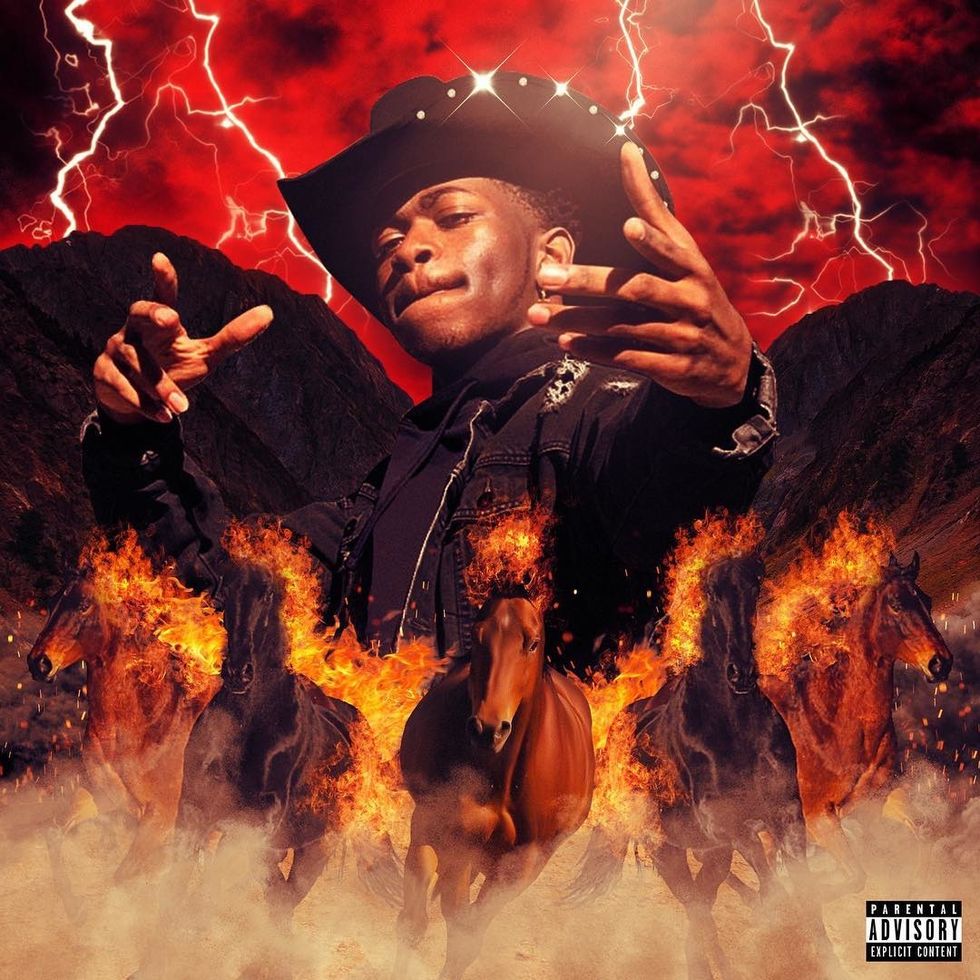Recently, a 19-year-old from Atlanta named Montero Hill, whose music name is Lil Nas X, told his father he wanted to drop out of college to be a rapper. His father told him "there's a million rappers in this country," his father told him. But Hill stood out among rappers by disregarding the genre in an unconventional song that was not rap, not country, but something else. Lil Nas X calls "Old Town Road" a "country trap" song, but the truth is that it is something greater and much more: a cultural and spiritual awakening.
I will confess that the first time I listened to "Old Town Road" I wasn't into it. I thought it was a joke and a social commentary on the excesses of country music. Regardless of how Lil Nas X intended the song, I say so unapologetically after the third or fourth time I played the song, I thought "wow, this is actually pretty good." In the past four or five days, it is the only song I have played, on repeat, all the time, much to the chagrin of my roommates and people who are constantly around me. I was born in Maryland and grew up in New York, and I have close to zero personal connection to country music. But "Old Town Road" is the musical version of "The Wire," one of God's gifts to the Earth and one of the best songs of all time, and I did go to high school on an Old Town Road.
Montero's rap name is Lil Nas X. At the end of the day, Billboard's decision to retract "Old Town Road" from the top of the top 100 country charts was done in poor taste, claiming that "Old Town Road" "does not embrace enough elements of today's country music to chart in its current version." Despite his rocky relationship with the country establishment, Billy Ray Cyrus remixed the song so it may be reconsidered and put atop the country chart again.
The song is a symbol of strength and resilience, a refusal to quit when the odds seem insurmountable. Nowhere is this better demonstrated than the chorus of Lil Nas X's masterpiece:
"I'm gonna take my horse to the old town road/ I'm gonna ride 'til I can't no more."
The song, written when the 19-year old Montero Hill was living with his sister and pessimistic about his prospects. In the words of Carrie Battan of The New Yorker, "Old Town Road" is a "novelty song, but it's far too convincing and catchy to be written off as pure parody." The song itself stayed atop the Hot R&B/Hip Hop songs chart even though it wasn't a very traditional rap song either. When Billboard chose to remove the song from the country chart, the optics were terrible: in the words of Battan, it was "a plainly defensive and nonsensical move that fell in line with its long-running mistreatment of black country artists."
But does it matter if the song is really rap, or really country? Do these conversations really matter, or are they more "an attempt to preserve a system of genres that has been crumbling for many years, and to affirm the primacy of a chart structure that is no longer relevant"? Cross-pollination between genres has been happening for a while now, and Billboard has kept songs like Taylor Swift's "We Are Never Ever Getting Back Together" led the Billboard's Hot Country chart for nine weeks.
In short, "Old Town Road" is a song that transcends the boundaries of genre. It is not rap and it is not country, it just is something greater than either classification will allow it. Lil Nas X labels the genre of "Old Town Road" "country trap," but it is the underdog song that mainstream listeners to country and rap didn't take seriously, that average listeners like myself treated like a meme until it blew up.
But that just is the cultural and spiritual awakening that "Old Town Road" reveals to us - that the grandest forms of brilliance are a combination of humor, bizarre backstories, and catchiness. And there's no argument that "Old Town Road" doesn't deserve to be atop the charts as a viral hit. Jordan Coley of GQ puts it best when he says "why, suddenly, is the game unethical when a young, black kid decides to play it and ends up playing very well?"
And then there's the symbolism behind the mixture of a country rapper or rapper cowboy. To Spencer Kornhaber of The Atlantic, the song "represents artistic anarchy of the best kind, the kind that demolishes walls and pushes forward." That's the artistic anarchy that democratizes not only the field of music, but art and writing, too the message that tells young, up-and-coming, and aspiring artists that there are no boundaries for our creativity. There is so much freedom outside of the categories of distinct genres like country, rock, and rap, but "Old Town Road," breaks open the field.
The "yee haw agenda" that "Old Town Road" popularizes has revolutionized our cultural and spiritual realities. It tells us that we can do anything as long as we ride our individual horses to the old town road, and that we should keep riding until we can't no more. If a 19-year-old college dropout living on his sister's floor can produce the top Billboard single, who can tell us what we can't do?






 The minimum wage is not a living wage.
StableDiffusion
The minimum wage is not a living wage.
StableDiffusion
 influential nations
StableDiffusion
influential nations
StableDiffusion












